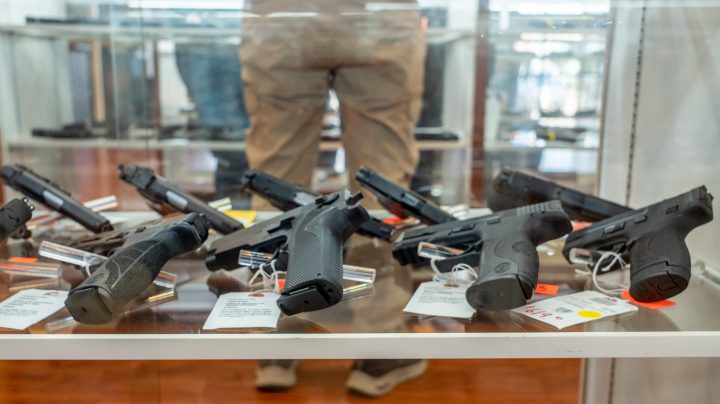
Gun retailers get a unique merchant code that could help flag suspicious sales
Gun retailers get a unique merchant code that could help flag suspicious sales

Did you know that when a credit card company processes a payment it uses different codes to signify different kinds of retailers? There’s a code for pet supply stores. Another one for florists.
For years now, there’s been pressure on the financial industry to create a unique merchant category code for stores that sell guns and ammunition to make it easier to flag suspicious sales.
Then, late last week, Amalgamated Bank announced that its application to an international global standards body to receive just such a code had been granted.
Since we started using credit cards about 70 years ago, gun and ammunition merchants have been part of the “miscellaneous” category, along with map stores, magic shops and places that sell mostly ice.
“Digital payments are increasingly widely used, and have been more frequently used for actually purchasing guns,” said Lisa Ellis, who studies payments at the equity research firm MoffettNathanson. “I think historically that was a purchase made in cash.”
The idea behind introducing this unique code for gun retailers is to help the financial services industry spot suspicious activity so it can report it to the Treasury Department.
“There’s been work done showing that before a lot of the mass shootings, the shooters involved oftentimes bought a significant number of firearms within just a few weeks of when the shooting occurred,” said Columbia Law School professor Kathryn Judge. “So there’s hope you could identify these patterns of behavior.”
And maybe even stop a shooting before it occurs.
Judge pointed out banks and credit card companies have a long history of flagging legal transactions that might be indicators of illegal activity.
She said for this to work, there will need to be a system to filter those red flags.
“Like actually, ‘Oh, like, there really is something here that’s suspicious,’ and then turn it over to the FBI or local law enforcement in a timely way. And those are mechanisms that don’t yet exist,” she said.
Judge said the financial industry tends to overreport, which means there could be more data going to the Treasury Department than it’s prepared to deal with.
There’s a lot happening in the world. Through it all, Marketplace is here for you.
You rely on Marketplace to break down the world’s events and tell you how it affects you in a fact-based, approachable way. We rely on your financial support to keep making that possible.
Your donation today powers the independent journalism that you rely on. For just $5/month, you can help sustain Marketplace so we can keep reporting on the things that matter to you.











